 Our healthcare and business law firm works with healthcare providers and businesses like IV hydration therapy practices. The IV hydration therapy industry has grown drastically over the past few years. Some states and medical boards have developed laws and rules governing IV Hydration Therapy practices. On August 15, 2023, the South Carolina Board of Medical Examiners, Pharmacy, and Nursing published a joint opinion on Retail IV Therapy Businesses. The language used and sanctions referenced reveal that the South Carolina Boards are critically reviewing IV therapy businesses. At one place in the 10-page opinion, the Pharmacy Board compared the “patient-drive menu” in many IV therapy practices “to a fast-food restaurant.” Reading between the lines of the advisory opinion, it is likely each board will begin cracking down on IV therapy practices. A full version of the Advisory Opinion is available here. We recommend you read the entire opinion if you have or are starting an IV therapy business in South Carolina. This blog post starts our review of the Advisory Opinion and outlines whether IV therapy is the practice of medicine. Forthcoming blog posts will dive deeper into different aspects of the opinion. If you have a question about South Carolina’s rules or would like to discuss this blog post, you may contact our healthcare and business law firm at (404) 685-1662 (Atlanta) or (706) 722-7886 (Augusta), or by email, info@hamillittle.com. You may also learn more about our law firm by visiting www.hamillittle.com.
Our healthcare and business law firm works with healthcare providers and businesses like IV hydration therapy practices. The IV hydration therapy industry has grown drastically over the past few years. Some states and medical boards have developed laws and rules governing IV Hydration Therapy practices. On August 15, 2023, the South Carolina Board of Medical Examiners, Pharmacy, and Nursing published a joint opinion on Retail IV Therapy Businesses. The language used and sanctions referenced reveal that the South Carolina Boards are critically reviewing IV therapy businesses. At one place in the 10-page opinion, the Pharmacy Board compared the “patient-drive menu” in many IV therapy practices “to a fast-food restaurant.” Reading between the lines of the advisory opinion, it is likely each board will begin cracking down on IV therapy practices. A full version of the Advisory Opinion is available here. We recommend you read the entire opinion if you have or are starting an IV therapy business in South Carolina. This blog post starts our review of the Advisory Opinion and outlines whether IV therapy is the practice of medicine. Forthcoming blog posts will dive deeper into different aspects of the opinion. If you have a question about South Carolina’s rules or would like to discuss this blog post, you may contact our healthcare and business law firm at (404) 685-1662 (Atlanta) or (706) 722-7886 (Augusta), or by email, info@hamillittle.com. You may also learn more about our law firm by visiting www.hamillittle.com.
- What lead to this opinion?
After reviewing the opinion, it is clear that each South Carolina board believed this opinion necessary for four main reasons: Continue reading ›
 Total Health Law Blog
Total Health Law Blog

















 Our healthcare and business law firm works with healthcare businesses to assist in compliance matters, including the Health Insurance Portability and Accountability Act (“HIPAA”) and the Health Information Technology for Economic and Clinical Health (HITECH) Act. The HITECH Act was designed to strengthen HIPAA in many ways. A question our healthcare business-owning clients often have is whether patients with insurance can choose to pay cash instead of billing to insurance. This post focuses on what the HITECH Act states on this subject. If you have a question about the HITECH Act or would like to discuss this blog post, you may contact our healthcare and business law firm at (404) 685-1662 (Atlanta) or (706) 722-7886 (Augusta), or by email,
Our healthcare and business law firm works with healthcare businesses to assist in compliance matters, including the Health Insurance Portability and Accountability Act (“HIPAA”) and the Health Information Technology for Economic and Clinical Health (HITECH) Act. The HITECH Act was designed to strengthen HIPAA in many ways. A question our healthcare business-owning clients often have is whether patients with insurance can choose to pay cash instead of billing to insurance. This post focuses on what the HITECH Act states on this subject. If you have a question about the HITECH Act or would like to discuss this blog post, you may contact our healthcare and business law firm at (404) 685-1662 (Atlanta) or (706) 722-7886 (Augusta), or by email,  Our healthcare and business law firm works with healthcare providers and businesses to
Our healthcare and business law firm works with healthcare providers and businesses to 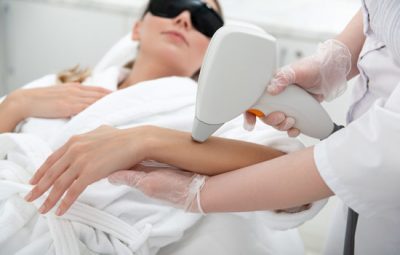 Our healthcare and business law firm works with healthcare providers and businesses to
Our healthcare and business law firm works with healthcare providers and businesses to 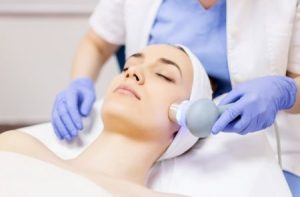 Our healthcare and business law firm works with healthcare providers and businesses to
Our healthcare and business law firm works with healthcare providers and businesses to  Our healthcare and business law firm consistently works with physicians who are dealing with complications resulting from adverse reporting to the National Practitioner Data Bank (“NPDB”) as well as entities in deciding what reports may be appropriate for certain situations. Whether you are on the side of the provider or reporting entity, it is important to understand the types of NPDB reports that are permitted. This post outlines the four types of reports. If you have a question about the NPDB or would like to discuss this blog post, you may contact our healthcare and business law firm at (404) 685-1662 (Atlanta) or (706) 722-7886 (Augusta), or by email,
Our healthcare and business law firm consistently works with physicians who are dealing with complications resulting from adverse reporting to the National Practitioner Data Bank (“NPDB”) as well as entities in deciding what reports may be appropriate for certain situations. Whether you are on the side of the provider or reporting entity, it is important to understand the types of NPDB reports that are permitted. This post outlines the four types of reports. If you have a question about the NPDB or would like to discuss this blog post, you may contact our healthcare and business law firm at (404) 685-1662 (Atlanta) or (706) 722-7886 (Augusta), or by email, 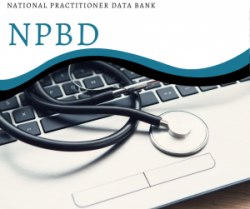 Our healthcare and business law firm consistently works with physicians who are dealing with complications resulting from adverse reporting to the National Practitioner Data Bank (“NPDB”). Certain entities, including medical licensure boards, facilities with a peer review process, and medical malpractice payers, have a duty to
Our healthcare and business law firm consistently works with physicians who are dealing with complications resulting from adverse reporting to the National Practitioner Data Bank (“NPDB”). Certain entities, including medical licensure boards, facilities with a peer review process, and medical malpractice payers, have a duty to 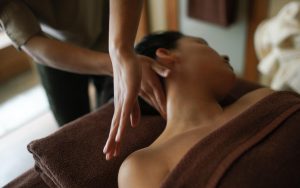 Our healthcare and business law firm works with healthcare providers and businesses to
Our healthcare and business law firm works with healthcare providers and businesses to 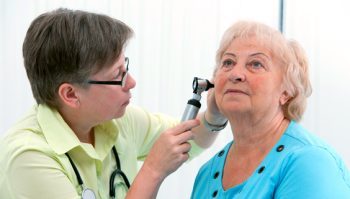 Our healthcare and business law firm works with numerous medical practices in compliance and regulatory matters. Many medical practices are unaware of the requirements of the Americans With Disabilities Act (“ADA”), and in particular the requirements to accommodate individuals with auditory disabilities (including individuals who are deaf or hard of hearing). The ADA does not just prevent disability discrimination by employers. Title III of the ADA applies to “public accommodations.” A public accommodation is a business that is open to the public or provides goods or services to the public and specifically includes a “professional office of a health care provider.” 28 CFR 36.104;
Our healthcare and business law firm works with numerous medical practices in compliance and regulatory matters. Many medical practices are unaware of the requirements of the Americans With Disabilities Act (“ADA”), and in particular the requirements to accommodate individuals with auditory disabilities (including individuals who are deaf or hard of hearing). The ADA does not just prevent disability discrimination by employers. Title III of the ADA applies to “public accommodations.” A public accommodation is a business that is open to the public or provides goods or services to the public and specifically includes a “professional office of a health care provider.” 28 CFR 36.104;